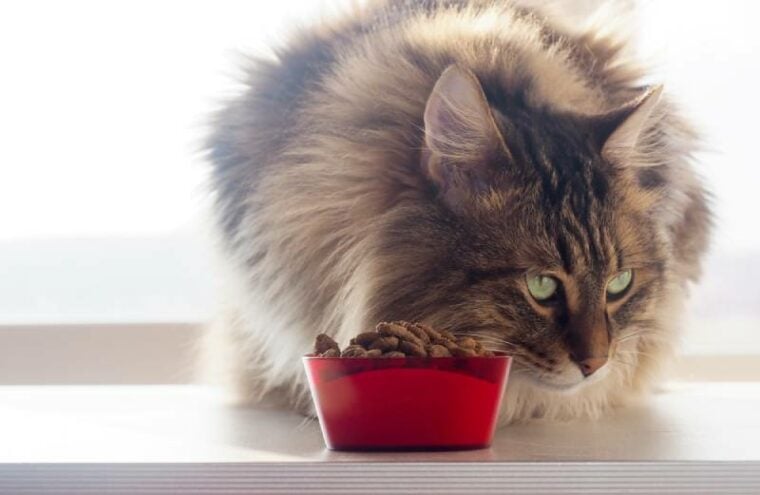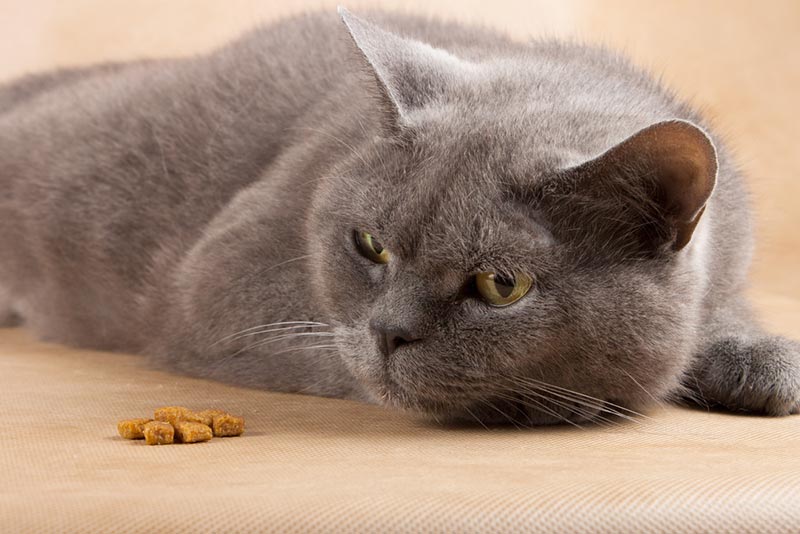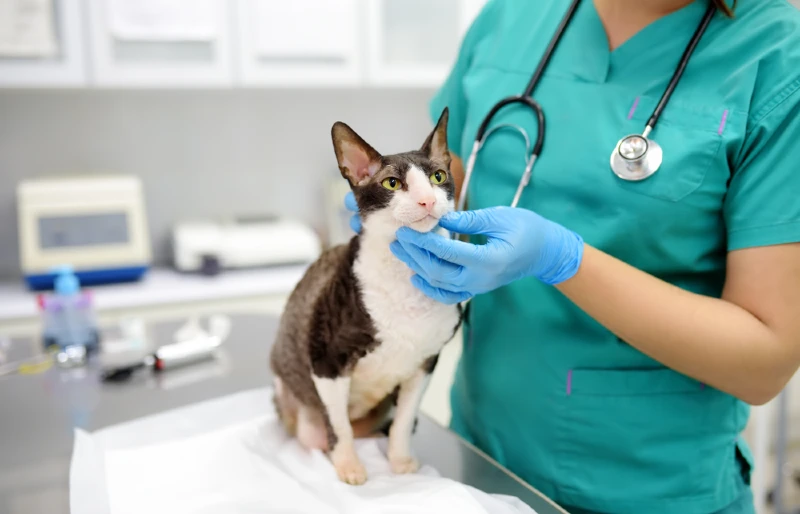
Cats tend to be finicky eaters. Most are not likely to grab a piece of broccoli off your plate or scrounge scraps of potato or rice from the garbage. That said, they likely won’t turn down a piece of meat. After all, they are carnivores, and commercial dry cat food is typically made mostly of meat and designed to meet the nutritional needs of felines overall. It’s a great mealtime option that happens to be convenient for owners. But what if your cat doesn’t eat the dry food that you offer them? There are many reasons that this might be the case in your household, including that your cat is bored with the food or is having digestive issues. Read on to learn more!
They’re Used to Eating Wet Food
If your cat is used to eating commercial wet food and you’re transitioning them to dry food, they may not like the dry food at first. This is especially true for kittens. When offering them a bowl of dry food, your feline might ignore it and hold out for the wet stuff that they are used to getting. Fortunately, with a little help from their owners, most cats will eventually get used to dry food and successfully transition to eating it full-time.
To get your kitty to eat strictly dry food, start slowly, and mix a portion of wet food with a portion of dry food before mealtime. Do this for a few days, then reduce the amount of wet food and increase the amount of dry food. Keep adjusting the food levels until your cat is happily eating dry food on their own at each meal.
The Recipe Has Been Changed
If you have been feeding your cat the same food brand for a while, they may stop eating it if they can detect that there is something different about it. A sudden disinterest in their food without any signs of illness might mean the manufacturer made a change in the food recipe.
Try checking the ingredient list and even contacting the manufacturers to enquire. You might need to entice your cat by mixing yummy toppers or tasty bone broth with their food. If this doesn’t work, schedule a consultation appointment with your veterinarian to rule out any medical issues. If your cat is healthy but still refuses the food, you might need to find a new food for your cat.
The Food No Longer Agrees With Them
As your cat ages, their nutritional needs and digestive system can change, and the food that they have been eating may no longer agree with them. It could be too rich in a certain nutrient, or the kibble can be too big for their older teeth to comfortably chew. Whatever the case, your cat is unlikely to continue eating it if it does not agree with their system and is causing discomfort. It’s a good idea to work with your veterinarian so you can determine your cat’s nutritional needs and how to meet them without upsetting their digestive system.

The Food Has Gone Bad
Dry cat food can go bad even if it looks and smells normal to humans. Mold might have started growing on it or an ingredient in it could have gone rancid. Your cat can pick up on these issues and turn up their nose at the food when you put it in front of them at mealtime. Replacing the food with a new batch should rectify the problem in this case. If your kitty still does not want to eat their food once it has been replaced, there is likely a different reason that they are not eating.
They Are Dealing With a Health Problem
If your cat is dealing with a problem like a tooth infection, dehydration, or an underlying illness or chronic condition, chances are that your kitty will not feel like eating. They may or may not display any other signs of pain or illness at this time, though, so it might not be clear that something is wrong with them. If you cannot find any other reason for their lack of interest in food, it is important to see a veterinarian and have a full health checkup completed.

Important Considerations
While dry food is convenient and in many cases, easier to feed a cat, you should keep in mind that cats evolved to obtain their hydration from their prey. If your cat prefers moisture-rich food, give them at least a small amount mixed with their dry food.
We also recommend ensuring that your cat is drinking water every day. This is especially important if they are on a dry food-only diet. The addition of a water fountain might entice your cat to drink more water throughout the day.
In Conclusion
Since there are a few different reasons that your cat might not like eating dry food, you will have to investigate by being more attentive during mealtimes, keeping an eye out for signs of illness and digestive distress, and trying new ways to feed your kitty. If you’re ever in doubt or can’t determine the reason for your cat’s lack of interest in dry food, contact your veterinarian.
Featured Image Credit: Popel Arseniy, Shutterstock







